In a World of Sorrow, Shall I Dish Up Green Eggs and Ham?
Lately I’ve been mulling the incongruity between the weight of human suffering in the world and the seeming inconsequence of children’s literature.
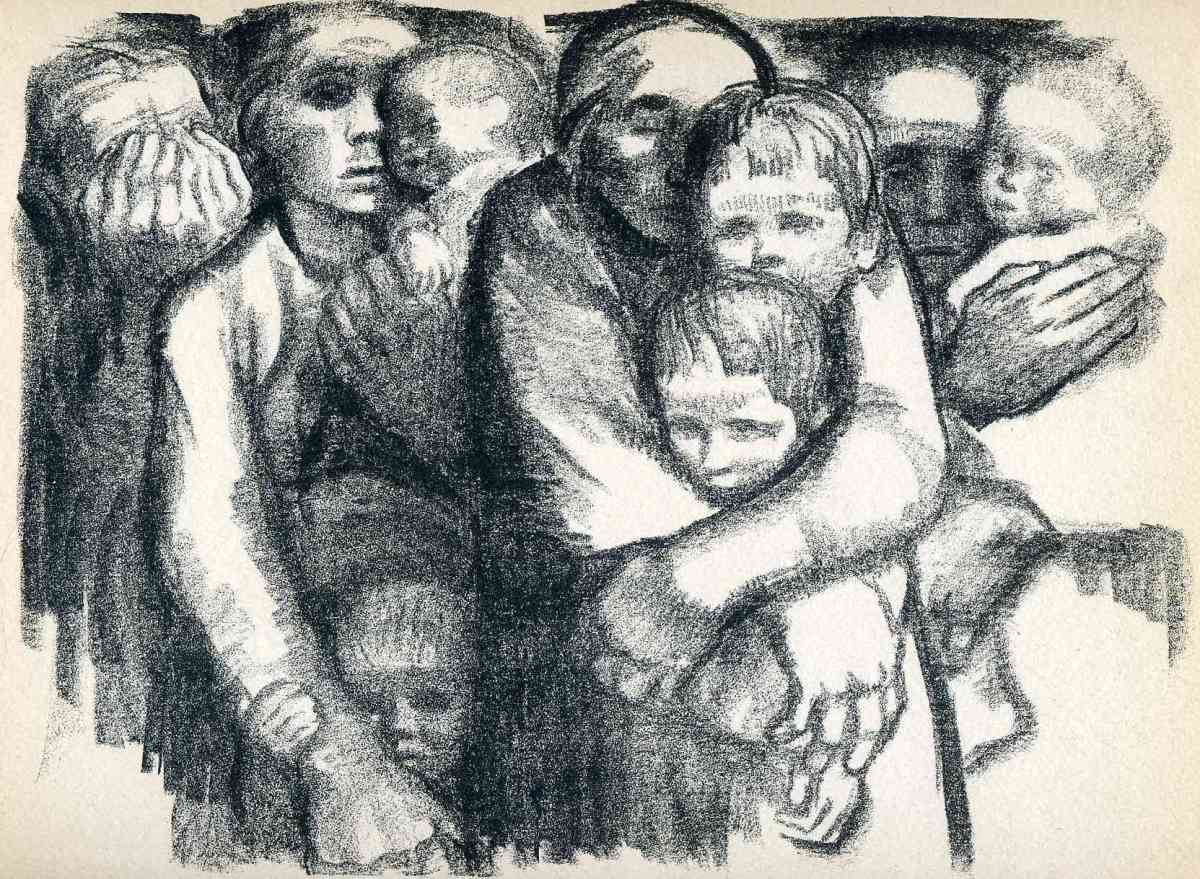
The Mothers, by Kathe Kollwitz
The question rattles around in my head: What good on Earth am I doing, proffering children’s books while humanity wages war on itself?
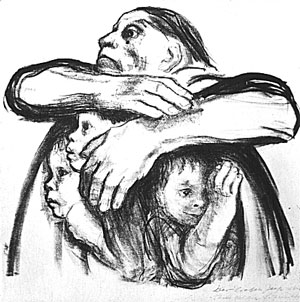
Seed for the Planting Shall Not Be Ground Up, by Kathe Kollwitz
Suffering on a massive scale, and intense grief and trouble afflicting one person, one family — in the face of this, is it reasonable to blog about kids lit? Is it in any way important?
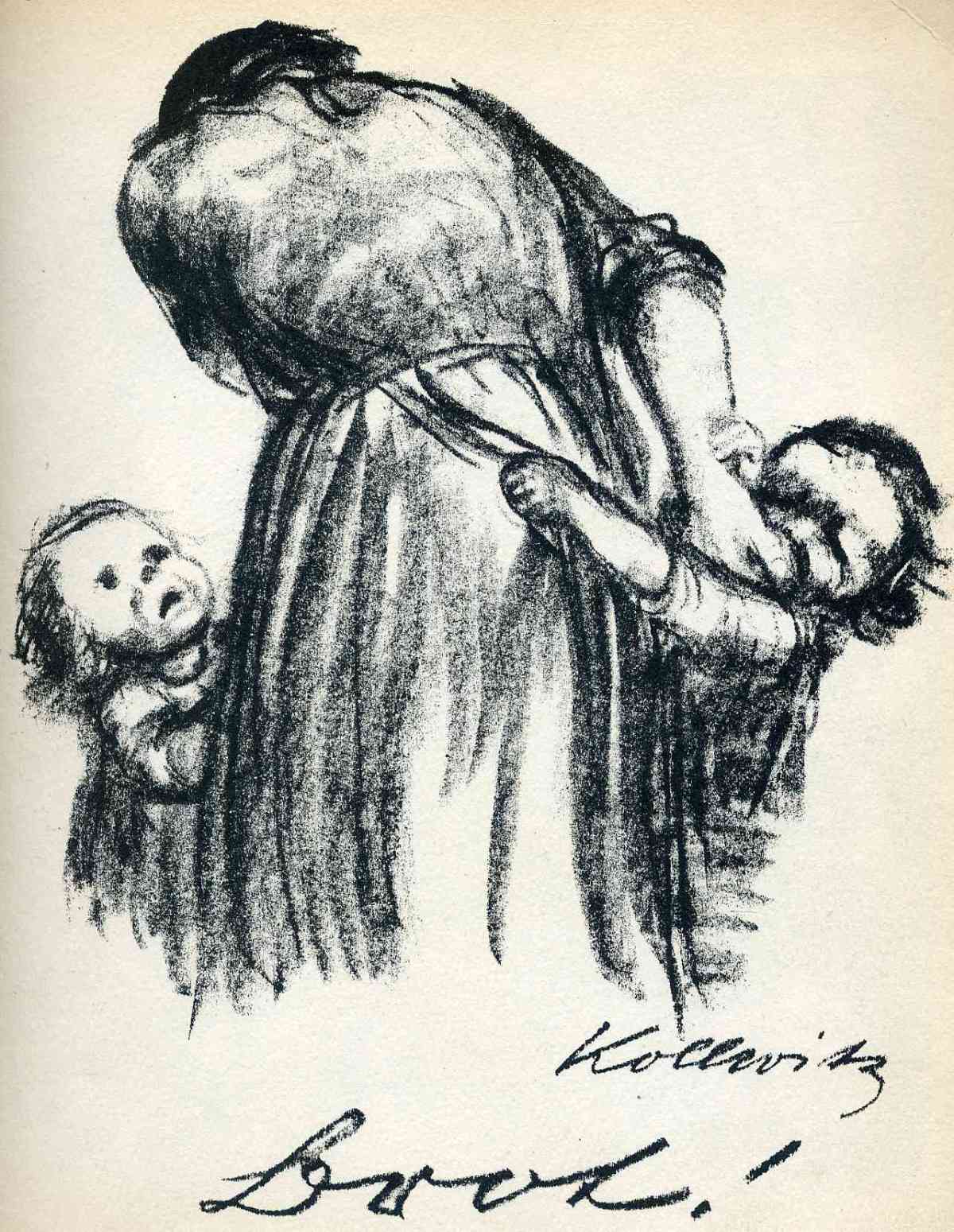
Brot! (Bread!) by Kathe Kollwitz
I spend a good bit of time reading children’s books. Some of them are about silly monkeys and whiney pigeons. Some drift into fantastical worlds of chocolate factories and grinning cats. Some call us to dreamy locations, to sailing adventures in the Lake District or cottages in the Berkshires. Many of them center around problems as momentous as losing ones socks, not feeling sleepy, or disliking soft-boiled eggs.
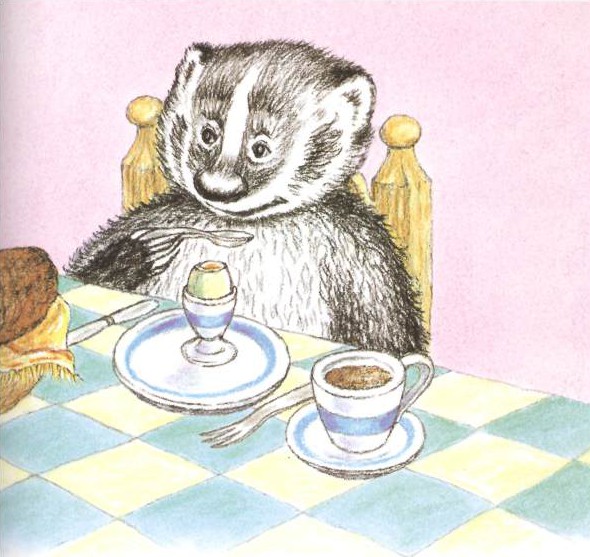
I have to ask myself: Is this inane? To turn from anguish and offer up bunnies sipping camomile tea? Is it callous? Absurd? Like Nero fiddling on the balcony?
When my kids were small, one of the golden pieces of our life  together was reading aloud. I take that back. It didn’t end when they weren’t small anymore. We kept reading aloud together as long as they lived at home. I wouldn’t change that, if I had it to do over again. Not a moment of it. What makes that piece so treasured?
together was reading aloud. I take that back. It didn’t end when they weren’t small anymore. We kept reading aloud together as long as they lived at home. I wouldn’t change that, if I had it to do over again. Not a moment of it. What makes that piece so treasured?
Through painful goodbyes as we moved back and forth between the U.S. and Africa, grumpy days, sick days, fallings out with friends, disappointments, days when I felt fatigued to my bones…we could pick up a book and sail away together, laugh until we cried (or at least, I cried), meet people who knit their way into our family psyche, root for the hero, get perspective on our troubles, come away charged with a new idea.
Reading is powerful.
Reading aloud together forges enduring, companionable bonds as we journey together to new places and into new relationships,  experience the emotions of a story together, make sense of stories together, create memories and build associations through story. We build a Secret Club, as it were, with passwords of just the odd word or phrase from countless stories that trigger curiously sweet camaraderie. As we read, we join a larger community with all those who love sorting hats or Frogs and Toads or a red-haired girl who hates being called Carrots. Connection happens through reading, and connection makes the world a better place. (I wonder if there’s a place for Read-aloud Diplomacy…)
experience the emotions of a story together, make sense of stories together, create memories and build associations through story. We build a Secret Club, as it were, with passwords of just the odd word or phrase from countless stories that trigger curiously sweet camaraderie. As we read, we join a larger community with all those who love sorting hats or Frogs and Toads or a red-haired girl who hates being called Carrots. Connection happens through reading, and connection makes the world a better place. (I wonder if there’s a place for Read-aloud Diplomacy…)
Reading heals.
Laughter is strong medicine. A merry heart does good like medicine, but a broken spirit dries the bones, says Solomon, and many times a funny story washed away the tired, grouchiness clouding my heart and my kids’ hearts as we read of ridiculous Mrs. Armitage or the Bastable children’s half-baked ideas or Alexander’s terrible, horrible day. Just feel that frustration drain…away…Tears can also heal. Tears of solace that come from meeting someone in a book who understands you, who stunningly names your pain, who gives you eyes to see your own life from a new vantage point.
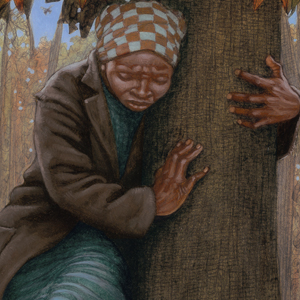 Reading builds empathy as we experience others’ lives vicariously in literature. It’s a way for us to meet people vastly different from ourselves and walk about in their skin. People far richer or far poorer. Cantankerous people. Bigoted people. Magical people. People of diff
Reading builds empathy as we experience others’ lives vicariously in literature. It’s a way for us to meet people vastly different from ourselves and walk about in their skin. People far richer or far poorer. Cantankerous people. Bigoted people. Magical people. People of diff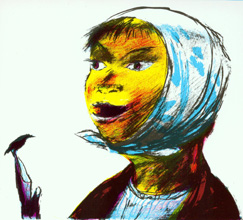 erent faiths, races, nations, times. Powerful, selfish people, and powerful, generous people. Victims of injustice. Elderly people with amazing life stories. Dragons afraid of their own shadows. Building bridges of understanding — understanding others and ourselves — makes the world a better place.
erent faiths, races, nations, times. Powerful, selfish people, and powerful, generous people. Victims of injustice. Elderly people with amazing life stories. Dragons afraid of their own shadows. Building bridges of understanding — understanding others and ourselves — makes the world a better place.
Reading nurtures minds and souls.
 When we read some books, that’s obvious. We weep over the deaths of book-friends and mull their lives, their choices, often their self-sacrifice. We grapple with flawed heroes and sympathetic villains. We are confronted with predicaments and untidy solutions. We encounter new information. Yet less-obviously heavyweight books also enrich us. Because they feed us Ideas.
When we read some books, that’s obvious. We weep over the deaths of book-friends and mull their lives, their choices, often their self-sacrifice. We grapple with flawed heroes and sympathetic villains. We are confronted with predicaments and untidy solutions. We encounter new information. Yet less-obviously heavyweight books also enrich us. Because they feed us Ideas.
Ideas are the heart of Art. Through the beauty of language, the power of words, of newly-minted worlds, of extraordinary illustration, of characters great and small, of conflict and resolution even on a Peter Rabbit scale, of creativity, of juxtaposition — the Art of books wafts Ideas our way, delights, mesmerizes, perplexes, sparks more ideas, more imagination, more wonder.
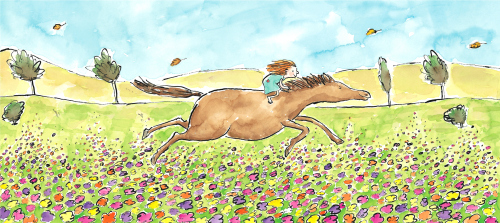
All of which leads me to say Yes! to Pooh Bear and that good dog, Carl, and dear Billy Miller. Because in the midst of brokenness, turning away to plant goodness, is how we make the world a better place.

Mother with a Child in her Arms, by Kathe Kollwitz
And reading with children is one way of planting goodness — of forging bonds, lightening hearts, building empathy, enriching our inner being, catching hold of ideas that spark wonder and imagination. We need more people, not less, reading silly, tense, adventurous, fantastical, comforting, warmhearted, outlandish, true stories — not only with young children, but with teenagers, roommates, companions, spouses, grandparents. The marvel of children’s literature, from picture books on up, is that it’s a source of brilliant stories accessible to young and old, that can help make us better people, so we can help make the world a better place.
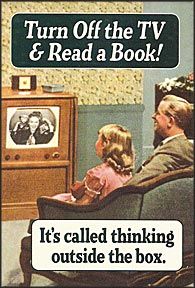



 together was reading aloud. I take that back. It didn’t end when they weren’t small anymore. We kept reading aloud together as long as they lived at home. I wouldn’t change that, if I had it to do over again. Not a moment of it. What makes that piece so treasured?
together was reading aloud. I take that back. It didn’t end when they weren’t small anymore. We kept reading aloud together as long as they lived at home. I wouldn’t change that, if I had it to do over again. Not a moment of it. What makes that piece so treasured?  experience the emotions of a story together, make sense of stories together, create memories and build associations through story. We build a Secret Club, as it were, with passwords of just the odd word or phrase from countless stories that trigger curiously sweet camaraderie. As we read, we join a larger community with all those who love sorting hats or Frogs and Toads or a red-haired girl who hates being called Carrots. Connection happens through reading, and connection makes the world a better place. (I wonder if there’s a place for Read-aloud Diplomacy…)
experience the emotions of a story together, make sense of stories together, create memories and build associations through story. We build a Secret Club, as it were, with passwords of just the odd word or phrase from countless stories that trigger curiously sweet camaraderie. As we read, we join a larger community with all those who love sorting hats or Frogs and Toads or a red-haired girl who hates being called Carrots. Connection happens through reading, and connection makes the world a better place. (I wonder if there’s a place for Read-aloud Diplomacy…) Reading builds empathy as we experience others’ lives vicariously in literature. It’s a way for us to meet people vastly different from ourselves and walk about in their skin. People far richer or far poorer. Cantankerous people. Bigoted people. Magical people. People of diff
Reading builds empathy as we experience others’ lives vicariously in literature. It’s a way for us to meet people vastly different from ourselves and walk about in their skin. People far richer or far poorer. Cantankerous people. Bigoted people. Magical people. People of diff erent faiths, races, nations, times. Powerful, selfish people, and powerful, generous people. Victims of injustice. Elderly people with amazing life stories. Dragons afraid of their own shadows. Building bridges of understanding — understanding others and ourselves — makes the world a better place.
erent faiths, races, nations, times. Powerful, selfish people, and powerful, generous people. Victims of injustice. Elderly people with amazing life stories. Dragons afraid of their own shadows. Building bridges of understanding — understanding others and ourselves — makes the world a better place. When we read some books, that’s obvious. We weep over the deaths of book-friends and mull their lives, their choices, often their self-sacrifice. We grapple with flawed heroes and sympathetic villains. We are confronted with predicaments and untidy solutions. We encounter new information. Yet less-obviously heavyweight books also enrich us. Because they feed us Ideas.
When we read some books, that’s obvious. We weep over the deaths of book-friends and mull their lives, their choices, often their self-sacrifice. We grapple with flawed heroes and sympathetic villains. We are confronted with predicaments and untidy solutions. We encounter new information. Yet less-obviously heavyweight books also enrich us. Because they feed us Ideas.
My husband’s cousin shared this post on Facebook years ago; it was the first post that I read on your delightful blog, one that I have come back to many times and recommended to friends. Thank you!
I’m so glad for the way this has encouraged you, Christina, and deeply appreciative of your kind words. Thank you!